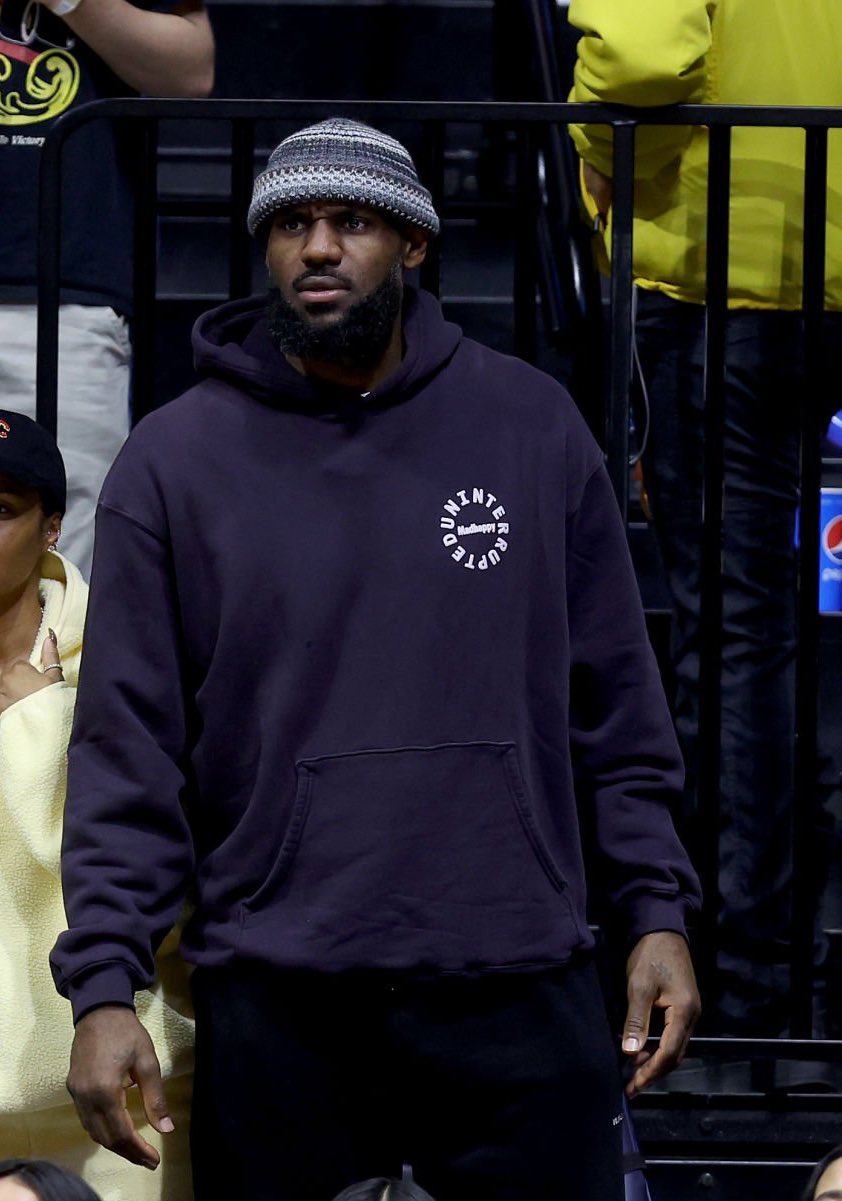The Unfathomable Criticism of Young Athletes: LeBron James’ Defense of Caitlin Clark and His Son

In the world of sports, the spotlight often shines on the remarkable talents and achievements of young athletes, celebrating their hard work, dedication, and pursuit of greatness. Yet, an unsettling trend has emerged: the relentless criticism and animosity directed towards these budding stars by grown adults. LeBron James, one of the most iconic figures in basketball, recently voiced his dismay over this issue, specifically addressing the unwarranted negativity faced by young athletes like Caitlin Clark and his own son. His impassioned plea calls for introspection and a reassessment of how society views and treats its young sports heroes.
LeBron James’ comments resonate deeply, not just because of his stature in the sports world, but because they highlight a troubling paradox. On one hand, society idolizes professional athletes, celebrating their achievements and often placing them on pedestals. On the other hand, these same athletes, especially when they are young and still finding their footing, are subjected to intense scrutiny and, at times, downright hostility. This dichotomy is not only perplexing but detrimental to the mental and emotional well-being of the athletes involved.
Caitlin Clark, a rising star in women’s basketball, exemplifies the dedication and talent that is often met with unwarranted criticism. Despite her impressive performances and undeniable skill, she, like many other young athletes, faces a barrage of negativity from individuals who seem intent on tearing her down. This phenomenon is not unique to her; it is a pervasive issue affecting many young athletes across various sports. The question arises: why do grown adults feel compelled to undermine the dreams and aspirations of these young individuals?

LeBron James touches on a crucial point when he mentions his 19-year-old son experiencing similar animosity. As a father, watching his son navigate the treacherous waters of public scrutiny while pursuing his passion for basketball must be particularly disheartening. Bronny James, like his father, is under constant surveillance by the media and public, and every aspect of his performance and life is dissected and critiqued. This intense scrutiny places immense pressure on young athletes, often leading to unnecessary stress and anxiety.
The root of this problem may lie in several factors, including societal expectations, the role of social media, and the inherent competitiveness within sports. Social media, in particular, has amplified the voices of critics, providing them with a platform to express their opinions, often without considering the impact of their words. The anonymity afforded by social media can embolden individuals to make harsh and unwarranted comments that they might not otherwise make in person. This digital age phenomenon has made it easier than ever for critics to target young athletes, creating an environment where negativity can thrive.
Furthermore, the competitive nature of sports can sometimes bring out the worst in people. Fans, driven by loyalty to their teams or athletes, may resort to disparaging the opposition, including young athletes who are simply trying to make their mark. This tribal mentality can lead to a toxic environment where the focus shifts from appreciating talent and sportsmanship to tearing down perceived rivals. This behavior is not only detrimental to the athletes but also undermines the spirit of sportsmanship and respect that should be at the heart of all sporting endeavors.
LeBron James’ defense of Caitlin Clark and his son is a call to action for all sports fans and society at large. It is a reminder that young athletes are individuals with dreams, aspirations, and vulnerabilities. They deserve support and encouragement as they navigate the challenges of their careers. Instead of tearing them down, we should be lifting them up, celebrating their achievements, and recognizing the hard work and dedication that got them to where they are.
Moreover, it is essential to foster an environment that prioritizes mental health and well-being for young athletes. The pressure to perform at the highest level, coupled with the scrutiny and criticism they face, can take a significant toll on their mental health. Organizations, coaches, and fans must work together to create a supportive and nurturing environment that allows these young stars to thrive both on and off the field.
In addressing this issue, it is also important to educate fans and the public about the impact of their words and actions. Campaigns and initiatives that promote positive fan behavior and highlight the importance of mental health in sports can play a crucial role in changing the narrative. By raising awareness and encouraging a more empathetic and supportive approach, we can help create a more positive and inclusive sports culture.
LeBron James’ heartfelt plea is a timely reminder of the responsibility we all share in shaping the sports environment. Young athletes like Caitlin Clark and Bronny James represent the future of sports, and it is incumbent upon us to ensure that their journey is not marred by unnecessary negativity and hostility. Instead, let us celebrate their achievements, support their growth, and create a sports culture that values respect, empathy, and encouragement.
In conclusion, the criticism and animosity directed towards young athletes is a troubling trend that needs to be addressed. LeBron James’ defense of Caitlin Clark and his son highlights the urgent need for a shift in how society views and treats its young sports stars. By fostering a supportive environment and promoting positive fan behavior, we can help young athletes achieve their dreams and contribute to a more positive and inclusive sports culture. It is time to stand up against the unnecessary negativity and embrace a spirit of encouragement and respect for all athletes, regardless of their age or stage in their career.






